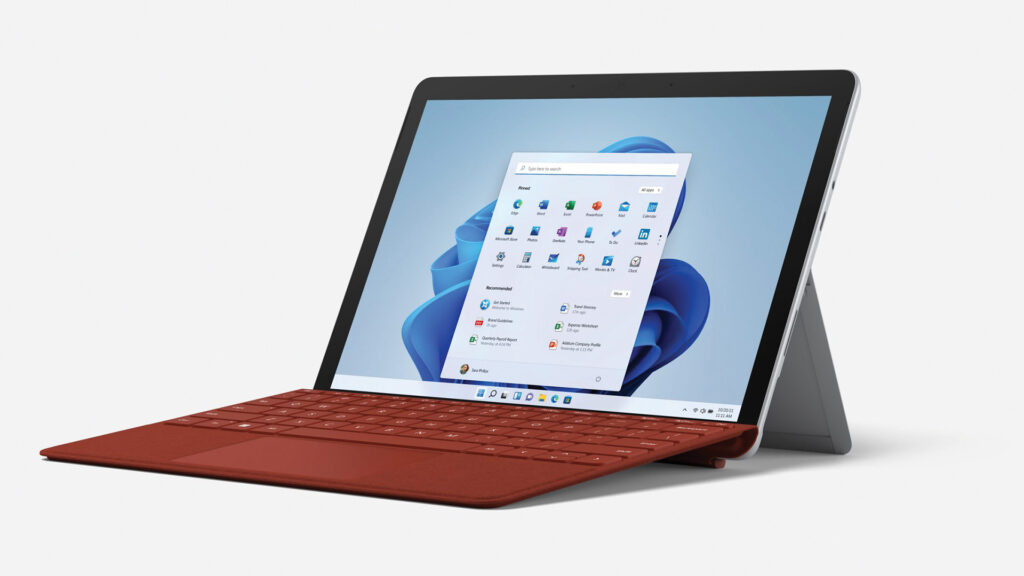The traces between tablets and laptops have grow to be awfully blurry of late. The newest iPad Air bought the identical processor as a MacBook Professional; 2-in-1 hybrids and convertibles provide a terrific pill and nice laptop computer in a single system; you’ll be able to go large funds on the most effective premium laptop computer.
You too can penny-pinch on an affordable pill – simply because it’s inexpensive, doesn’t imply it’s dangerous. So how do you select what’s greatest for you?
The primary concern is worth. The very least expensive tablets needs to be thought of toys: whereas on the time of writing Amazon’s Fireplace HD 8 is simply $85/£70, we wouldn’t need to use it for something severe for any time frame. The candy spot for tablets is $250/£200 to $499/£400, which is the place you’ll discover the entry-level iPad, Microsoft’s Floor Go 3 and the OnePlus Pad. Respectable laptops might be discovered for nicely underneath $500/£500, rising to £1000/$1000 or extra for bigger, extra highly effective fashions; Chromebooks might be as low-cost as $150/£120 for very primary varieties, with extra succesful machines coming in round $300/£250.
The most important advantage of a pill is portability. Tablets are often lighter than laptops and are typically smaller too. However portability often means much less energy, fewer growth ports and a smaller show – until you purchase a top-end pill with a price ticket to match. For instance, Apple’s largest tab, the iPad Professional 12.9in, begins at $1099/£1249; there are stacks of laptops with 15in or 17in shows accessible for significantly lower than that.
Two grow to be one
Laptops are good all-rounders and essentially the most highly effective ones are extremely quick for even essentially the most demanding duties, whereas the most affordable ones are nice for on a regular basis computing. They’re not fairly as moveable as tablets, though the distinction is way lower than it was once, however they have a tendency to have quicker efficiency and extra growth choices.
Simply to blur issues a bit extra, there are many actually good 2-in-1 units to select from now, a lot of them from the identical large names that make legendary laptops. A 2-in-1 hybrid has a touchscreen and is hinged so you’ll be able to change it from a laptop computer to a pill and vice-versa – and whereas that provides a little bit of weight and expense, there’s some actually progressive design happening on this sector.
Sleever ceaselessly?
Whereas worth is essential, it’s extra essential to consider what you need your system to do. If you happen to’re a severe gamer, a devoted gaming laptop computer goes to be a greater purchase than any pill, not least due to the higher graphics playing cards you’ll be able to specify. Whereas companies similar to Microsoft’s Xbox Cloud Gaming work on tablets, the visuals merely aren’t pretty much as good.
If chuckability issues extra, a pill is the higher possibility. However for those who’re going to do a whole lot of typing then a laptop computer could also be extra snug (and almost certainly extra inexpensive) than a equally highly effective pill with a further keyboard cowl. If you happen to want a big show, you’ll discover that laptops provide the most important ones for the most effective costs.
It’s sensible to take a look at storage and expandability too. What is perhaps sufficient for you in the present day, must be sufficient in a yr or two as nicely. Tablets are inclined to have a single USB connector, however laptops and a few 2-in-1s provide a spread of ports in addition to headphone sockets and, in some instances, memory-card readers.
Slice up your life
The ultimate issue is whether or not a tool can run the apps it is advisable use. Massive hitters similar to Microsoft Workplace and Adobe Photoshop can be found on each sorts of units, however some specialist apps are PC-only or Mac-only.
Android tablets and Chromebooks don’t have fairly the vary of big-name apps you’ll discover on Macs or PCs, and Amazon’s Fireplace tablets have a smaller choice nonetheless – and for those who’ve already paid for apps on different platforms, you’ll often want to purchase them once more for those who’re transferring to a special working system.
Redefining laptop computer design
Asus Vivobook 13 Slate OLED
This 2-in-1 laptop computer has a beautiful OLED show like the easiest TVs, however it’s a superbly moveable PC. With Dolby Imaginative and prescient and Dolby Atmos, it’s nice for watching films.
HP Spectre x360
Like Dell’s XPS 13 2-in-1, the Spectre x360 is an instance of the most effective ultraportable laptops round being given a 360° hinge. It’s an outstanding do-anything, go-anywhere machine.
Asus Zenbook Professional Duo 14 OLED
What number of screens ought to a laptop computer have? If you happen to answered “One and a bit” you’ll just like the Professional Duo, whose tilt-up second show doubles as a helpful touchscreen.

